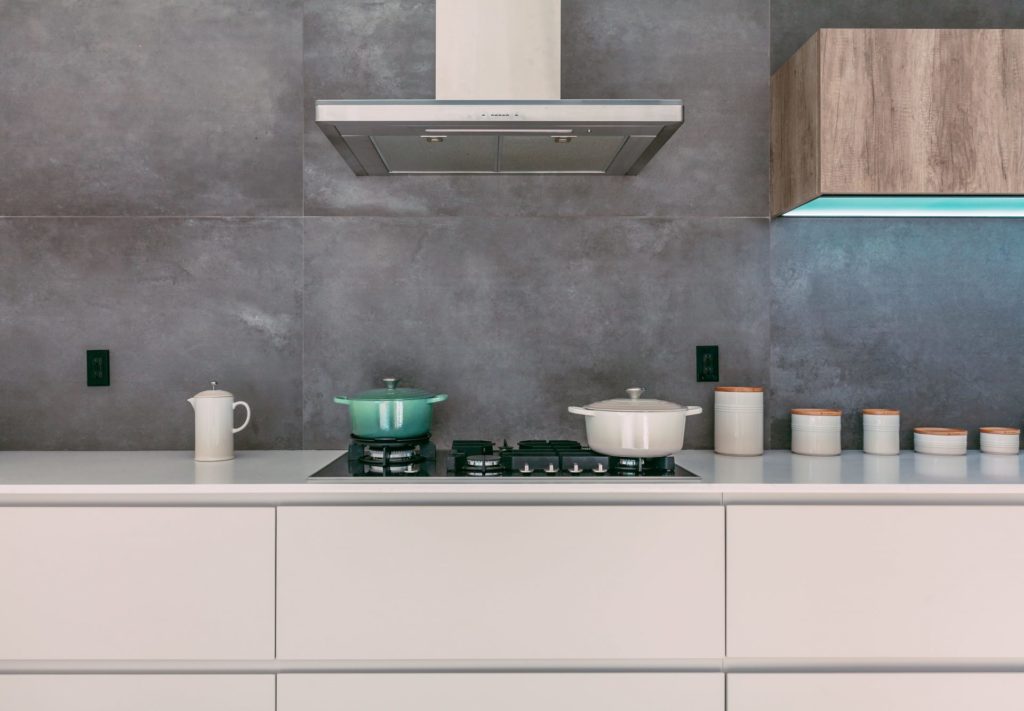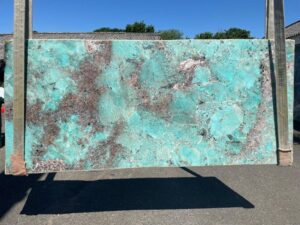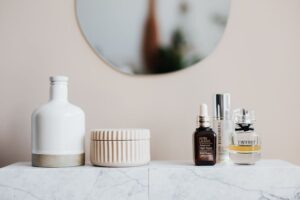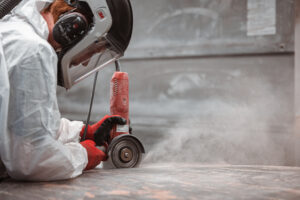How to Clean Porcelain Worktops
Although they sound fragile, Porcelain worktops are easy to clean and care for. Modern manufacturing processes have transformed the humble ceramic into a beautiful and practical worktop material that can stand up to the rough and tumble of everyday life without chipping, scratching or cracking.
Daily Cleaning Routine for Porcelain Worktops
Porcelain worktops are non-porous which means that there’s nowhere for germs or dirt particles, this makes them an excellent option for kitchen worktops as small amount of food can’t become trapped in the worktop. They are also waterproof, which means they don’t absorb liquids (no stains!) or bad smells. As a result, mopping up any spills as soon as possible plus a daily wipe down with a damp cloth should be sufficient. If you want to use something more than water, a gentle cleaner like washing up liquid will do the trick – dish soap is ideal as it’s specifically designed to cut through the grease and grime of food so is great to use on splashed sauce or spilled cooking oil.
Deep Cleaning Your Porcelain Worktops
If you’re worried that your Porcelain kitchen worktops are starting to lose their shine, the first step is to give them a thorough clean with a gentle cleaning product designed to cut through grease and food-related dirt (washing up liquid, as mentioned above, is a good first port of call). Once any dirt has been removed, a thorough rinse will remove the product itself, as residue may cause the surface to look dull. Drying to a shine with a soft cloth may be all that’s needed to complete the job.
What to Avoid
It’s important not to make the situation worse. Do not use harsh chemicals, such as bleach, or abrasive cleaning cloths, such as scourers or steel wool. These are unlikely to damage the worktop itself, but will cause scratches and micro-abrasions which can dull the polish of your worktop. Instead, choose a specialist cleaning product designed to work on porcelain or sintered stone worktops and follow the instructions fully. These can often cut through residue left by other cleaning products and restore the beauty of the porcelain.
When to Call in the Experts
A porcelain worktop that won’t shine after the treatment outlined above may have been damaged by poor care (such as using abrasive chemicals or scourers) and need professional repolishing to achieve a full shine.
Are Porcelain Worktops Delicate?
Porcelain dinnerware is famously fragile, so how does it translate into a robust kitchen worktop? The answer is that Porcelain worktops are much thicker than dinnerware and also cured at incredibly high temperatures – typically over 1200C. This creates a porcelain surface which is as tough as rock. Porcelain worktops are non-porous and waterproof, so they don’t stain, and are non-reactive, so aren’t affected by acidic food spills such as wine or vinegar. While we recommend treating them gently, they really are surprisingly tough and are able to handle most things that are thrown at them – including the odd dropped plate, pan or glass!





